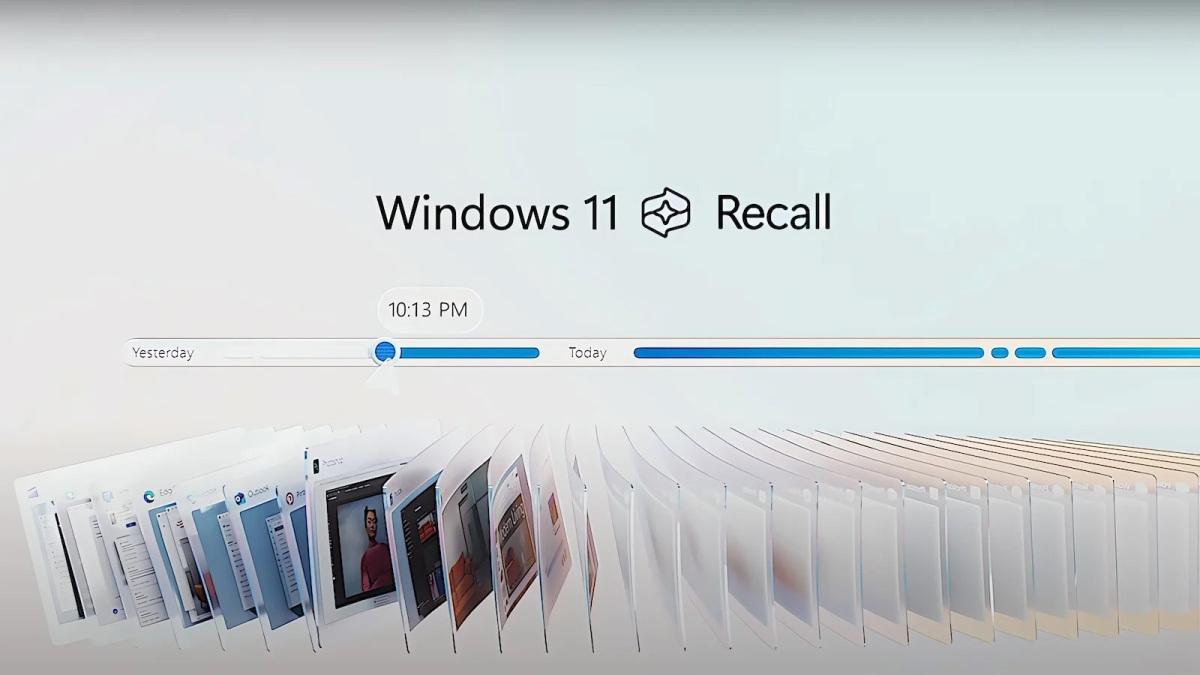Microsoft’s highly anticipated Recall feature for Windows has once again been delayed due to concerns surrounding privacy and security. The AI tool, which aims to provide users the ability to undo and reverse certain actions on their computers, was initially expected to release with the Windows 11 update. However, Microsoft has decided to hold off on its launch to address potential risks associated with the feature.
The Recall feature has been designed to help users retract and undo various actions, such as accidental file deletions or unintended settings changes. The concept behind it is to provide a safety net for users, allowing them to easily reverse actions that may have negative consequences or cause inconvenience. However, concerns have been raised about the potential for privacy breaches and security vulnerabilities that could arise from such a tool.
Privacy advocates have voiced their apprehensions over the amount of data that Recall could potentially collect and analyze. Microsoft has an extensive record of storing user data, and the Recall feature could amplify this further, raising concerns about the possible misuse or mishandling of sensitive information. Critics argue that this level of data collection and analysis without explicit user consent could infringe on privacy rights.
In addition to privacy concerns, the security implications of implementing the Recall feature are also being thoroughly assessed. The tool’s ability to revert actions poses a considerable risk if it falls into the wrong hands. Hackers could potentially exploit the feature to reverse security measures or access sensitive information, exacerbating the existing threat landscape.
Microsoft has acknowledged these concerns and is taking a cautious approach to ensure that Recall aligns with stringent privacy and security standards. The company has been diligently working on refining the feature’s design and functionality to address these issues effectively. By taking this step back, Microsoft aims to strike a balance between the convenience and utility of the Recall tool and the protection of user privacy and security.
While the delay may disappoint users eagerly awaiting the Recall feature, Microsoft’s decision to prioritize privacy and security is commendable. The company has a responsibility to its users to ensure that any new features or tools are not only innovative and useful but also respectful of the user’s privacy and security rights.
As technology continues to advance, the need for robust privacy and security measures becomes increasingly crucial. While Recall holds significant potential to enhance user experience, Microsoft’s commitment to addressing privacy and security concerns must be appreciated. By thoroughly vetting the feature and ensuring it abides by the highest standards, Microsoft is demonstrating its dedication to protecting its users’ interests.
The Recall feature’s delay may be frustrating, but it reflects Microsoft’s dedication to making responsible, privacy-focused decisions. As the company works to address the privacy and security concerns raised, users can look forward to a more refined version of the Recall tool that prioritizes their data protection without compromising its functionality. With privacy and security remaining at the forefront, Microsoft’s Recall feature has the potential to become a valuable addition to the Windows ecosystem in the future.

